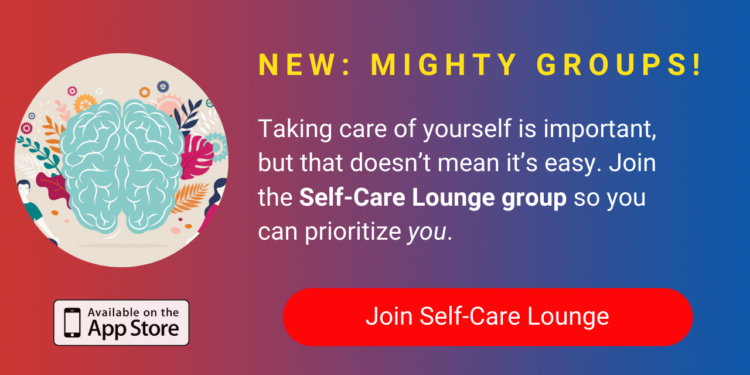Simu Liu tweeted some hard facts:

For many Asians, marriage is the endgame your parents want for you. Even if you’ve earned your PhD or got picked for that management role your colleagues were vying for, your parents regularly slip in a reminder that you haven’t checked off the “getting married” box on the life to-do list. They mention offhand how nice it is that your cousin of the same age is not just married but already pregnant. They excitedly tell you about their friend with an adult child who is also single with the hopes of matching you up. They bring up the story of how your sister met her husband unprompted with hopes you’ll catch their drift. And you’re understandably frustrated they view your unmarried life as somehow inferior to that of a married one.
Maybe you have no interest in getting married. Maybe you want to get married eventually, just not on your parents’ timeline. Maybe you’re actively seeking a long term relationship that will lead to marriage, and your parents’ pressure makes you feel inadequate because you’re not in one yet. Regardless, their suggestion that your life is somehow incomplete without marriage is annoying at best and distressing at worst.
As a first-generation Chinese-Canadian I know what it’s like to get peppered by my ah-ma and parents with not-so-subtle hints I pursue a relationship and get married when I was in university. (But also study hard, earn high grades and not get distracted by dating. Essentially, do all the things and do them excellently). Like many others growing up in Asian immigrant families, my parents’ insistence I prioritize getting married once I was in my 20s was a 180 degree turn from high school when dating was strongly discouraged if not forbidden.
I remember one night FaceTiming my parents in my third year of university when I was halfway across the country and living alone. After we talked about school, what I was eating for dinner, and the importance of staying hydrated, the topic of conversation drifted to dating and I could feel myself getting on edge. You see, if you looked at my grades there was no sign I was struggling, but I had been deteriorating socially, mentally and spiritually for two years. Pursuing a relationship was simply out of reach for me, but my parents didn’t know that. After my dad suggested I was having little luck finding a relationship because my standards were too high and I wasn’t giving guys enough of a chance, I found myself breaking down in tears after our video chat ended.
Like many children of immigrants, I’ve been torn between living my parents’ version of my best life and pursuing my own happiness. But the reason I was overwhelmed that evening wasn’t just because of the whiplash from my parents’ sudden change in attitude toward dating and their absurd assumption that being with a romantic partner was a switch I could flip on. I was angry they were demanding I get over the developmental trauma that made it difficult for me to seek and maintain a healthy committed relationship in the first place.
Let’s turn the lens on you
Prioritizing your mental health and developing the emotional skills that would make a healthy relationship possible are wise choices your parents may not understand. You don’t have control over their values and priorities, but here is what you can do when you’re faced with their pressure to “settle down”:
1. Remember you’re not responsible for your parents’ anxiety. If they’re worried about your “biological clock” or that you won’t live a fulfilling life without “the one,” it’s not your job to say or do anything that will make them less anxious.
In collectivist cultures, there’s an expectation you’re not supposed make others worry (for example, if you’re sick, don’t make people overseas worry by telling them about it). But this way of operating can make you feel responsible for the emotions of others. It’s not your job to live a life that eases your parents’ worry. It’s their job to learn how to self-soothe their worry without resorting to control or guilt, which they may find difficult without acknowledging their own mental health and trauma.
2. Set firm boundaries in your conversation. If they bring up dating and marriage and you don’t want to talk about it, say “I appreciate your concern for me, but I am not interested in talking about this aspect of my personal life with you right now.” If they continue to push despite your request, ask for space and walk away. No need to further engage when they don’t respect your wishes.
3. Acknowledge any anger you have toward your parents for the pressure they put on you. Anger is a vital, self-protective emotion. We often see it come out in damaging ways, which may make us feel ashamed for feeling it, especially toward our caregivers. Many Asians also have trouble connecting with their anger due to internalized stereotypes that we ought to be reflective, zen, docile and harmonious with others. But anger is a core emotion essential to survival, and you’re not a bad or disloyal person for feeling it.
4. Reflect how you’ve met expectations and sought approval to avoid conflict and secure love. If you’re anything like me, that was your MO throughout childhood. But chasing approval disconnects you from yourself and is a fickle way of being assured of your worth.
5. Celebrate the fact you want to choose nothing less than wholehearted love in your life regardless of whether it is in the form of a marriage. Learning how to give and receive love wholeheartedly without experiencing or exerting coercion, obligation, guilt or control may take time, maybe even a lifetime. Be patient and compassionate toward yourself along the way and know you are worthy of love and deserve happiness as you’re figuring it out.
There are a multitude of ways to live a fulfilling and meaningful life. Unlike previous generations, you now have the option to support yourself and choose the life that will bring meaning and joy to you. You are your best compass. Marriage may or may not be part of where you are heading, and that is OK.
If you’re having trouble sensing your self-worth in the face of parental disapproval or processing your complex and conflicting feelings that arise from their expectations, connecting with a therapist can help you learn how your family relational history is impacting your well-being today and how to use your emotions as sources of strength.
Getty image by Tirachard


